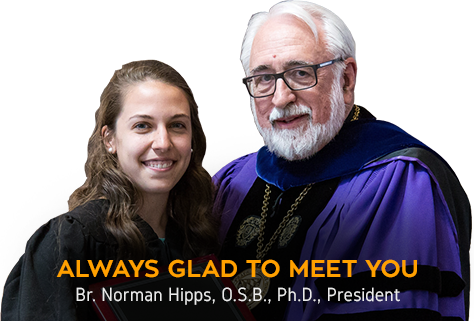One of the most common questions that I get from incoming graduate students in the Master of Science in Management: Operational Excellence program is “What books should I read to help me prepare for my classes?” While I don’t often tell them explicitly what books they must read before starting course work, I do recommend some that have been influential to my way of thinking. Goodreads.com is a popular website that many of my friends use to recommend books. Since I don’t have a Goodreads account, I thought I would share some of my recommendations here for those readers who might want to spend the rest of winter warm inside with some good books.
Some of these recommendations are classics in the field in which I teach and research (management/organizational behavior) – ones that you would likely expect a management professor to recommend. Others are perhaps less expected. Yet, all of the below books are influential to my way of thinking (but are listed in no particular order). Eight seems a substantial number for a reading list so I will limit my recommendations to that amount. Full citations of recent editions are provided at the end of this blog.

Servant Leadership: A Journey into the Nature of Legitimate Power and Greatness – Greenleaf
In my opinion, this is one of the most influential and classic books in leadership studies. Greenleaf clearly states what it means to be a leader: that person is to work toward the betterment of the common good. In this book, he offers suggestions for businesses, schools, religious institutions and other types of organizations. Throughout, he stresses a “mindfulness” and a reliance on deep understanding (perhaps summed up as not missing the forest for the trees) in order to be effective. Organizations have a purpose to both serve and improve society and this must not be lost on leaders. As such, the role of those seeking to create a difference is to lead/serve organizations from within.
Political Savvy: Systematic Approaches to Leadership behind the Scenes – DeLuca
I first read this book when I was studying for my Master of Science in Leadership and Business Ethics at Duquesne University. A light bulb went off in my mind making me realize the profound importance of social structures. I learned that it’s crucial to know who influencers of a decision are if you want to try to advance your ideas. Another key lesson is to understand everyone’s perspectives before going into a formal meeting and to leverage your knowledge of others’ perspectives in that meeting. In other words, know the outcome of meetings before they even begin and, if possible, try to find ways to assert some leverage to influence them in a manner that you hope. I also learned that social politics exist everywhere (in every workplace) and that understanding them is not necessarily a bad thing.
The Power of Framing: Creating the Language of Leadership – Fairhurst
This book is not on my list just because Gail Fairhurst is a friend and mentor of mine – reading this was truly life-changing for me. From this book, I realize the importance of language at being an effective leader. How a leader discusses phenomena greatly influences others’ perspectives. If she or he can frame the information in a truthful and ethical manner using “linguistic tools” that resonate with others, that leader will be more effective. To me, framing is all about drawing on a lexicon that people can understand and can relate to in order to create positive actions.
Presentation of Self in Everyday Life - Goffman
This recommendation is not a typical business book, but has great implications for studies related to how people act and interact in the workplace. In this book, sociologist Erving Goffman discusses that people try to emphasize (or de-emphasize) certain aspects of themselves when doing so benefits them in a social situation, just as actors on a stage would strive to make an audience believe their performance. This piece was so influential to me that I wrote an article in the Journal of Intergenerational Relationships highlighting how Goffman’s work can inform the study of intergenerational phenomena in the workplace.
Organizational Culture and Leadership – Schein
Schein’s book would likely be a more expected recommendation from a management professor than would Goffman’s. However, there are some great similarities between the ideas of both authors. This book focuses on the importance of social norms and how individuals behave within the context of a collective group, as does Goffman’s work. However, Schein emphasizes that inherent in all cultures are unspoken assumptions that influence the values which in turn influence tangible artifacts (e.g., behaviors, processes, aesthetic characteristics, appropriate communication, etc.). These elements of culture suggest the importance that individuals understand their context and leverage their relationship with their environment purposely and properly in order to both challenge and/or maintain aspects of their social group in which they work.
The Fifth Discipline: The Art and Practice of the Learning Organization – Senge
Senge is considered a management guru for good reason. His views on the importance of continuous learning are crucial to organizations, though they have not been overly adopted. Some crucial points in this book that resonate with me include: solving one problem often creates another, social systems (virtually every process or group is a social system) are complex and interconnected and trying to fix problems in social systems by engaging in the same activity (that hadn’t previously worked) more intently is doomed to failure. In order to improve, we must see systems holistically and work together, learning from each other and finding greater insights into challenges that are systematic in nature. The “fifth discipline” is systems thinking and suggests that causal attribution of problems is difficult and that linear thinking is inaccurate. One of the most resounding quotes to me is “everyone shares responsibility for the problems generated by a system.” Senge emphasizes that, to find better solutions, we must first consider how our own actions have contributed to systemic problems.
Laudato Sί: On Care for Our Common Home – Pope Francis
This encyclical is very influential to my view of Operational Excellence (as evident in the article in the Journal of Biblical Integration in Business that I co-authored with Drs. Hisker and Godwin), though the focus of this writing is not necessarily on business or on continuous improvement initiatives. However, in the encyclical Pope Francis discusses the importance of people being good stewards of the earth’s resources which is crucial to the OE principle of waste minimization. He furthermore emphasizes the importance of realizing the interconnectedness of all people. The implications to business and management of such a statement are virtually endless.

The Hobbit – Tolkien
Here’s another unexpected recommendation from a business professor. I love fantasy and I love J.R.R. Tolkien. I wrote two articles (one of which became a book chapter) on using leadership from Tolkien’s Middle-earth to illustrate leadership theories. What I love about “The Hobbit” is that it’s so simple yet so complex. Life is a journey like the one protagonist Bilbo Baggins takes. The analogy of life being a journey is a philosophy that is foundational to my view of education: We are all on a journey and, the more experiences we have, the more we learn and grow. When Bilbo returns home, he is a changed and much more enriched person.
Upon writing this, I’ve noticed some themes common to many of my recommended books. Almost all of the authors emphasize the concept of “mindfulness” which I will suggest is intuition in understanding self and fit with others/environment. Even more apparent is that virtually all of the books consider the interconnectedness of the world; nothing and no one exists in isolation from others.
Perhaps these books will be as impactful to you as they are to me. I’m interested to learn about books that you recommend. Please share with me at michael.urick@stvincent.edu, on social media (www.facebook.com/urickmj and www.linkedin.com/pub/michael-urick/a3/775/5b/) or in the comments below.
DeLuca, J. R. (1999). Political savvy: Systematic approaches to leadership behind-the-scenes. Evergreen Business Group.
Fairhurst, G. T. (2010). The power of framing: Creating the language of leadership. John Wiley & Sons.
Goffman, E. (1959). The presentation of self in everyday life. New York.
Greenleaf, R. K. (2002). Servant leadership: A journey into the nature of legitimate power and greatness. Paulist Press.
Pope Francis. (2015). Laudato Sí: On care for our common home.
Schein, E. H. (2010). Organizational culture and leadership. John Wiley & Sons.
Senge, P. M. (2006). The fifth discipline: The art and practice of the learning organization. Broadway Business.
Sprinkle, T. A., & Urick, M. J. (2016). Alternatives to the movie sandwich habit: Practical approaches to using movies to teach leadership and power. Management Teaching Review, 1(2), 105-119.
Tolkien, J. R. R. (2012). The hobbit. Houghton Mifflin Harcourt.
Urick, M. J. (2014). Wizards, hobbits, and kings: Leadership in Tolkien’s Middle-earth and lessons for business leaders. Journal of Leadership and Management, 2(2), 21-29.
Urick, M. J. 2017. Wizards, hobbits, and kings: Leadership in Tolkien’s Middle-earth and lessons for business leaders. Leadership and Management: Emerging, Contemporary, and Unorthodox Perspectives (Adam Szpaderski and Christopher P. Neck, Eds.), 223-242. HPL Publications, Inc. (note this is a reprint of a 2014 journal article in Journal of Leadership and Management)
Urick, M. J. (2014). The presentation of self: Dramaturgical theory and generations in organizations. Journal of Intergenerational Relationships, 12(4), 398-412.
Urick, M. J., Hisker, W. J., & Godwin, J. L. (2017). Management Response to Laudato Sí: An Operational Excellence Perspective. Journal of Biblical Integration in Business, 20(2). 20-29.


 中国学生
中国学生 Estudiantes
Estudiantes




